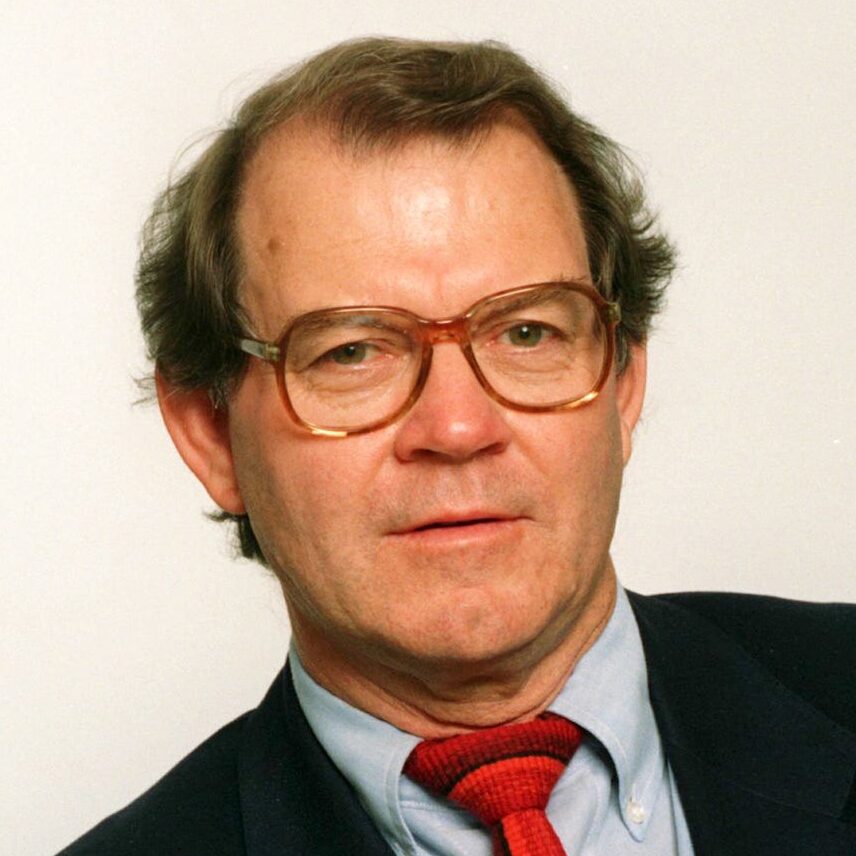Remer Tyson, who spent the better part of two decades chronicling wars, famine and freedom movements in Africa — including South Africa’s triumph over apartheid — died at his home in Harare, Zimbabwe, on December 27, 2023. He was 89.
A Nieman Fellow from the class of 1967, Tyson was revered among foreign correspondents for the depth and breadth of his coverage, as well as for his generosity and mentorship of younger journalists. He filed dispatches from more than 40 countries, from Mali to Madagascar, and from Egypt to South Africa. Some were from the sharp edge of breaking events, like the battle of Mogadishu and the Rwandan genocide. But he also dedicated years to covering developing stories, like Namibia’s independence and Nelson Mandela’s heroic struggle to win his freedom.
His reputation was well-earned and well-known. When The Carter Center landed in Lusaka, Zambia, to monitor contentious elections in the early ’90s, Jimmy and Rosalynn Carter sought out Tyson for his take on the leaders, people and politics at play.
Born and raised on a farm near Statesboro, Georgia, where his parents grew tobacco, cotton and pecans, Tyson graduated from Georgia Teachers’ College and, later, the Grady School of Journalism at the University of Georgia. His first job was at The Valdosta Times, but he soon won a spot at The Atlanta Constitution where he became a political reporter, covering his first of what would become eight presidential campaigns.
Following his Nieman fellowship, Tyson jumped to the Detroit Free Press in 1970, then one of the country’s top-10 circulation newspapers, and rose to become its chief political writer. Assigned to open the paper’s first Africa bureau, he returned to Harvard to study at the Business School, then hit the ground running in a newly independent Zimbabwe in 1981.
In the mid-1980s Tyson was back in Detroit as the paper’s foreign editor. But the pull to Africa remained strong, and in 1988 he returned to the continent and never left.
During his time back in Detroit, Tyson and Free Press reporter Billy Bowles, spent summers criss-crossing the country in a beat-up Volkswagen collecting stories on some of the South’s most notorious politicians. Their book,“They Love a Man in the Country,” is a rogues’ gallery of characters who shaped the South — for better and for worse — during the early parts of the 20th century. Hodding Carter, NF ’66, praised it as, “a window into a world that is gone forever.”
On retiring in 1997, Tyson and his wife Virginia Curtin Knight Tyson, who wrote and edited a three-volume encyclopedia on African biography, joined the Knight Foundation to train and coach African journalists in Ghana and South Africa.
Tyson is survived by his wife, daughter Tera Elizabeth Tyson, and his sister Kay Tyson Hart.



